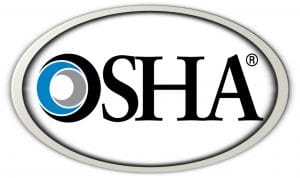
In early to mid-2010, the agent was investigating an Amtrak contractor that had been convicted in a New York state court for fraud in examining and testing concrete at building projects in the New York City area. This Amtrak contractor had performed testing on certain Amtrak tunnel projects. Strongly believing it was necessary for safety and security reasons, the agent raised safety concerns regarding work performed by this contractor on Amtrak projects.
Then, in October 2010, the agent gave Amtrak’s Dispute Resolution Office information and provided support for a fellow employee who had received a letter of reprimand after he raised safety concerns in a separate matter. The following month, the agent received his first-ever negative performance review. In March 2011, Amtrak notified him that – as a part of an overall reorganization – his position was being eliminated. In the course of the next few months, the agent applied for other positions, but was told that he lacked the required law enforcement training, despite a 40-year law enforcement career that included equivalent training. In June 2011, Amtrak notified the agent that he would be terminated due to his not being placed in a new position.
The terminated agent later filed a whistleblower complaint with OSHA. After concluding its investigation, the agency determined that the complainant engaged in protected Federal Railroad Safety Act activities when he raised concerns about safety issues related to work conducted by the Amtrak contractor and when he expressed his support of his fellow agent’s safety complaints. OSHA also found these protected activities contributed as factors in his termination by Amtrak.
“In this case, an employee was terminated for pursuing and reporting safety concerns. The employer’s retaliation is unacceptable and illegal. Federal law gives rail carrier employees the right to raise safety, health and security concerns with their supervisors without fear of retaliation. When retaliation occurs, it can have a chilling effect on employees and create a climate of silence where employees’ fear to speak up masks conditions that could impact their health and well-being, and that of their customers,” said Jeffrey Erskine, OSHA’s acting New England regional administrator.
OSHA has issued a notice of findings to Amtrak ordering it to take the following corrective actions:
- Reinstate the employee to his former or a similar position with all rights, seniority and benefits he would have received had he not been discharged.
- Pay him a total of $892,551, which is comprised of $723,332 in back wages plus $34,218 in interest; $100,000 in punitive damages; $35,000 in compensatory damages; plus reasonable attorney’s fees and costs.
- Expunge from Amtrak’s records all references related to his discharge and exercise of his FRSA rights; make no adverse statements concerning his employment at Amtrak; and not retaliate or discriminate against him in any manner.
- Post a notice to all railroad employees about their FRSA rights.
The employee and Amtrak each have 30 days from receipt of OSHA’s findings to file objections and request a hearing before the Labor Department’s Office of Administrative Law Judges.
OSHA enforces the whistleblower provisions of the FRSA and 21 other statutes protecting employees who report violations of various airline, commercial motor carrier, consumer product, environmental, financial reform, food safety, health care reform, nuclear, pipeline, worker safety, public transportation agency, railroad, maritime and securities laws.
Employers are prohibited from retaliating against employees who raise various protected concerns or provide protected information to the employer or to the government. Employees who believe that they have been retaliated against for engaging in protected conduct may file a complaint with the Secretary of Labor to request an investigation by OSHA’s Whistleblower Protection Program. Detailed information on employee whistleblower rights, including fact sheets, is available at http://www.whistleblowers.gov.
Under the Occupational Safety and Health Act of 1970, employers are responsible for providing safe and healthful workplaces for their employees. OSHA’s role is to ensure these conditions for America’s working men and women by setting and enforcing standards, and providing training, education and assistance. For more information, visit http://www.osha.gov.
 Earlier last week, the Occupational Safety and Health Administration (OSHA) issued a final rule covering railroad whistleblower cases and employer retaliation. The rule serves to clarify whistleblower protections already in place and establishes procedures and time frames for handling employee retaliation complaints covered under the National Transit Systems Security Act (NTSSA) and the Federal Railroad Safety Act (FRSA).
Earlier last week, the Occupational Safety and Health Administration (OSHA) issued a final rule covering railroad whistleblower cases and employer retaliation. The rule serves to clarify whistleblower protections already in place and establishes procedures and time frames for handling employee retaliation complaints covered under the National Transit Systems Security Act (NTSSA) and the Federal Railroad Safety Act (FRSA).